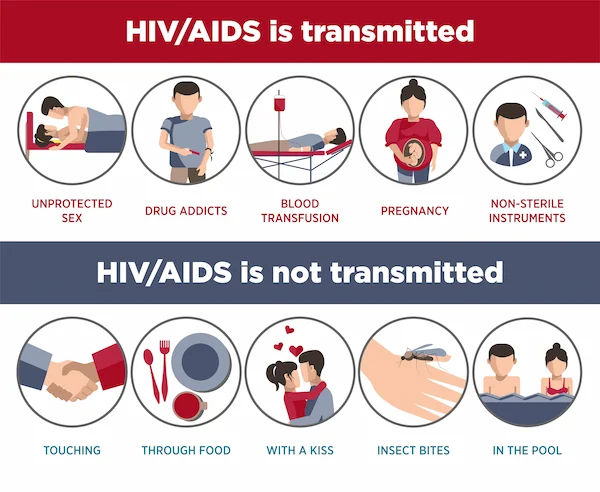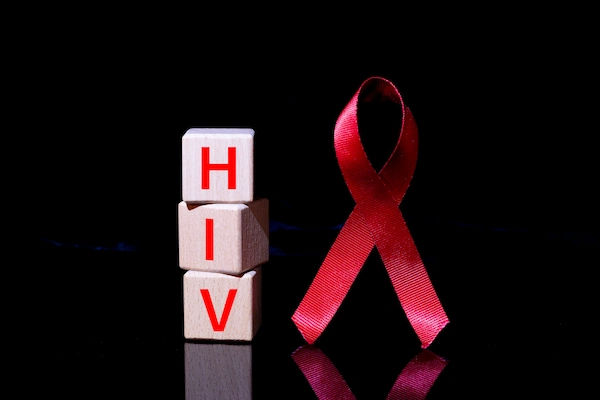HIV Viral Load Test Overview and Procedure
Learn what an HIV Viral Load Test is, why it’s important, how it’s done, and how results guide treatment. Understand undetectable viral load, U=U, and ways to stay healthy with HIV.


Living with HIV (Human Immunodeficiency Virus) can be challenging, but with the right care and monitoring, it’s possible to lead a healthy life. One of the most important tests for managing HIV is the Viral Load Test. If you or a loved one has HIV, understanding this test can help you stay informed and take control of your health.
What Is an HIV Viral Load Test?
The HIV Viral Load Test measures the amount of HIV virus in your blood. It tells doctors how active the virus is and how well your treatment is working. A high viral load means the virus is multiplying quickly, while a low or undetectable viral load indicates that your medications (antiretroviral therapy or ART) are effectively controlling the virus.
Why Is This Test Important?
1. Monitors Treatment Effectiveness – Helps doctors check if your HIV medications are working.
2. Detects Treatment Failure Early – If the viral load increases, it may mean the virus is becoming resistant to your current treatment.
3. Reduces Transmission Risk – People with an undetectable viral load (less than 20-50 copies/mL) cannot transmit HIV sexually (U=U – Undetectable = Untransmittable).
4. Guides Treatment Changes – If needed, your doctor may adjust your medications based on test results.
When Should You Get Tested?
After Diagnosis – To determine your baseline viral load before starting treatment.
After Starting ART – Usually 2-4 weeks after beginning treatment, then every 3-6 months.
If Symptoms Worsen – Such as frequent infections or unexplained weight loss.
Before and After Changing Medications – To ensure the new treatment is effective.
How Is the Test Done?
The HIV Viral Load Test is a simple blood test. Here’s what to expect:
1. Blood Sample Collection – A healthcare professional will draw blood from your arm, just like a regular blood test.
2. Lab Analysis – The sample is sent to a lab to measure the amount of HIV RNA (genetic material of the virus) in your blood.
3. Results – Usually available within a few days. Your doctor will explain what they mean.
Does It Hurt?
You may feel a slight pinch when the needle goes in, but the test is quick and generally painless.
Understanding Your Results
Undetectable (Less than 20-50 copies/mL) – The virus is well-controlled, and treatment is working.
Low (50-1,000 copies/mL) – The virus is present but at low levels. Your doctor may monitor closely.
High (Above 1,000 copies/mL) – The virus is active, and treatment adjustments may be needed.
Consult an Specialist for the best advice
What If Your Viral Load Increases?
Don’t panic! Sometimes, small increases happen due to lab variations or missed doses. Your doctor will look for trends over time. If the viral load stays high, they may:
Check if you’re taking medications correctly.
Test for drug resistance.
Adjust your treatment plan.
Tips for Keeping Your Viral Load Low
1. Take Your Medications Consistently – Missing doses can lead to drug resistance. Set reminders if needed.
2. Follow Up with Your Doctor – Regular check-ups help track progress.
3. Maintain a Healthy Lifestyle – Eat nutritious food, exercise, and avoid smoking/alcohol.
4. Manage Stress – Stress weakens immunity. Try meditation, yoga, or counseling.
5. Stay Informed – Learn about HIV and new treatment options.
When to See a Doctor?
If you experience:
Frequent infections (like thrush, pneumonia).
Unexplained weight loss or fatigue.
Persistent fever or night sweats.
Book a Consultation or Test with Apollo 24|7
Managing HIV requires regular monitoring. If you need an HIV Viral Load Test or expert advice, you can easily book a test or consultation through Apollo 24|7. Their specialists can guide you on the best treatment and care plan.
Get Your Health Assessed
Final Thoughts
The HIV Viral Load Test is a crucial tool in managing HIV. By keeping track of your viral load, you and your doctor can ensure your treatment is working effectively. Remember, with proper care, people with HIV can live long, healthy lives. Stay consistent with your medications, follow up with your doctor, and take care of your overall well-being.
If you have any concerns or need support, don’t hesitate to reach out to a healthcare provider.
Consult an Specialist for the best advice
Consult an Specialist for the best advice

Dr. Rajib Ghose
General Physician/ Internal Medicine Specialist
25 Years • MBBS
East Midnapore
VIVEKANANDA SEBA SADAN, East Midnapore

Dr. Ajay K Sinha
General Physician/ Internal Medicine Specialist
30 Years • MD, Internal Medicine
Delhi
Apollo Hospitals Indraprastha, Delhi
(200+ Patients)
Dr. Indrajit Das
General Physician/ Internal Medicine Specialist
4 Years • "MD (Internal medicine) : Gauhati Medical College and Hospital, Guwahati (2018-2021) MD (Pathology) : Gauhati Medical College and Hospital, Guwahati (2012-2015) MBBS (Bachelor of Medicine, Bachelor of Surgery) : Silchar Medical College, Assam (2003-2008) "
Guwahati
Apollo Excelcare Hospital, Guwahati

Dr. Mohammed Sharouk Khader
General Physician/ Internal Medicine Specialist
11 Years • MBBS, Bach. of Med. & Surg., Dip. of American Board of Family Med.
Chennai
Apollo Hospitals Greams Road, Chennai
(125+ Patients)

Dr. Hariprasath J
General Physician/ Internal Medicine Specialist
19 Years • MD (Gen Med), FCCP, Dip (Diabetology, UK)
Chennai
Apollo First Med Hospitals P H Road, Chennai
(225+ Patients)



_1.webp)

